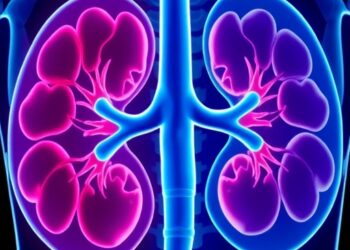Dietary vitamin D modulates the gut microbiome to enhance the response to cancer immunotherapies, according to a new study in mice. The findings illuminate the poorly understood connection between vitamin D and immune responses to cancer via gut bacteria and suggest that vitamin D levels could serve as a potential determinant of cancer immunity and immunotherapy success. Vitamin D plays an important role in immune modulation as well as shaping the gut microbiome. Studies have also investigated the micronutrient’s role in cancer immunity as it’s been linked to both lower incidence of tumors and decreased mortality for several types of cancers and improved responses to immune checkpoint inhibitor (ICI) treatments. However, how the activity of vitamin D affects the success of cancer immunotherapy and whether this effect involves the immune system and/or the microbiome remains unclear. Through genetic and dietary manipulation in mice, Evangelos Giampazolias and colleagues found that increased vitamin D bioavailability leads to changes in the microbiome in ways that favor Bacteroides fragilis – an anaerobic Gram-negative bacterium found in humans and mice. According to Giampazolias et al., the increase in B. fragilis enhanced immune-mediated resistance to cancer, including resistance to the development of melanomas and improved responses to ICI. What’s more, the authors discovered that this increased anti-cancer immunity could be transferred to other mice by fecal transplantation. Although Giampazolias et al. demonstrate a link between vitamin D activity and lower cancer incidence in humans, the authors note that longitudinal studies in humans are needed to disentangle the interaction between vitamin D availability and dietary supplementation with the microbiome and immunity to cancer. “The study of Giampazolias et al. highlights the important role of diet in the design of microbial therapies,” write Fabien Franco and Kathy McCoy in a related Perspective. “Future investigations will help delineate how microbes can be harnessed in conjunction with dietary interventions to unleash the full potential of ICI therapy.”
Dietary vitamin D modulates the gut microbiome to enhance the response to cancer immunotherapies, according to a new study in mice. The findings illuminate the poorly understood connection between vitamin D and immune responses to cancer via gut bacteria and suggest that vitamin D levels could serve as a potential determinant of cancer immunity and immunotherapy success. Vitamin D plays an important role in immune modulation as well as shaping the gut microbiome. Studies have also investigated the micronutrient’s role in cancer immunity as it’s been linked to both lower incidence of tumors and decreased mortality for several types of cancers and improved responses to immune checkpoint inhibitor (ICI) treatments. However, how the activity of vitamin D affects the success of cancer immunotherapy and whether this effect involves the immune system and/or the microbiome remains unclear. Through genetic and dietary manipulation in mice, Evangelos Giampazolias and colleagues found that increased vitamin D bioavailability leads to changes in the microbiome in ways that favor Bacteroides fragilis – an anaerobic Gram-negative bacterium found in humans and mice. According to Giampazolias et al., the increase in B. fragilis enhanced immune-mediated resistance to cancer, including resistance to the development of melanomas and improved responses to ICI. What’s more, the authors discovered that this increased anti-cancer immunity could be transferred to other mice by fecal transplantation. Although Giampazolias et al. demonstrate a link between vitamin D activity and lower cancer incidence in humans, the authors note that longitudinal studies in humans are needed to disentangle the interaction between vitamin D availability and dietary supplementation with the microbiome and immunity to cancer. “The study of Giampazolias et al. highlights the important role of diet in the design of microbial therapies,” write Fabien Franco and Kathy McCoy in a related Perspective. “Future investigations will help delineate how microbes can be harnessed in conjunction with dietary interventions to unleash the full potential of ICI therapy.”
Journal
Science
Article Title
Vitamin D regulates microbiome-dependent cancer immunity
Article Publication Date
26-Apr-2024




